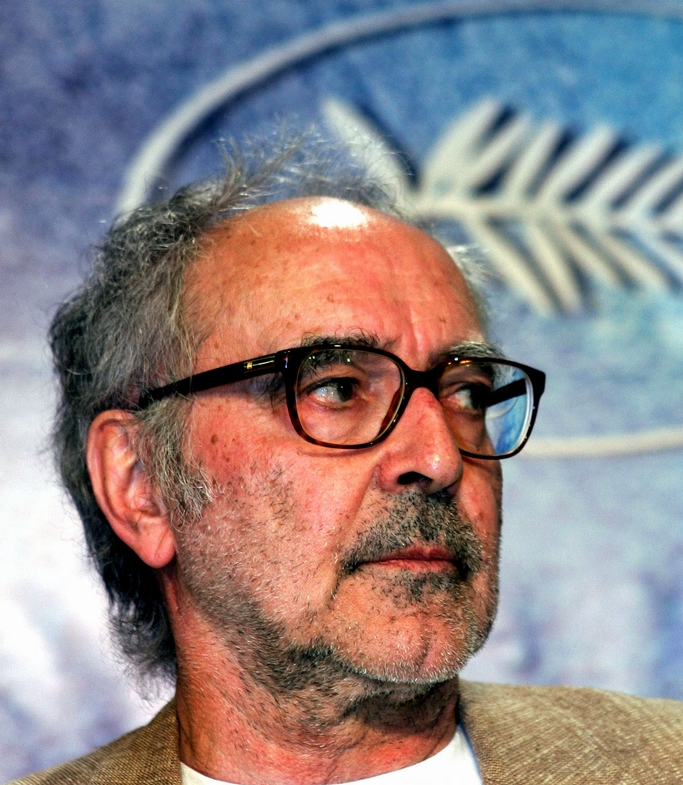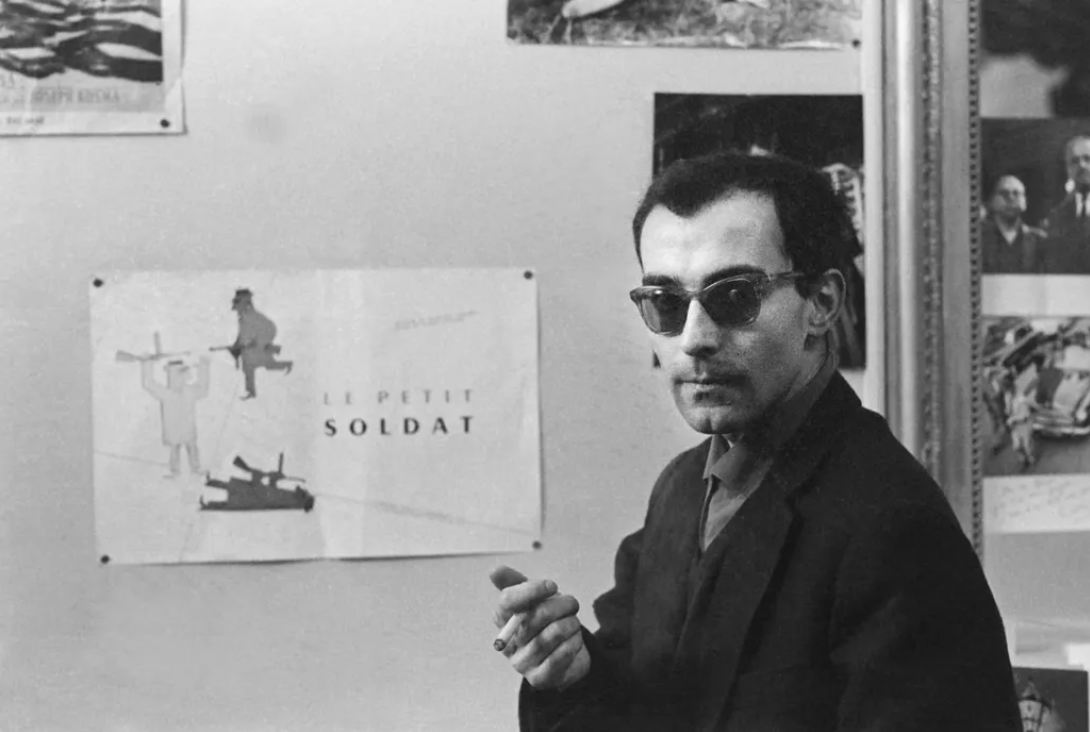|
Cannes 2023 :: Killers of the Flower Moon :: Martin Scorsese’s Bitterest Crime Epic
Martin Scorsese triumphs yet again. A story about greed, corruption, and the mottled soul of a country that was born from the belief that it belonged to anyone callous enough to take it.. |
|
Berlinale 2023 :: Full Winners List
This year’s jury, headed by Kristen Stewart, gave
the Golden Bear award to the French documentary “On the Adamant..” The Silver Bear for
Best Lead Performance notably went to child star Sofia Otero for “20,000 Species of Bees.”
Philippe Garrel's “The Plough” was.. |
|
BAFTA 2023 :: ‘All Quiet on the Western Front’
Dominates BAFTA Awards With Seven Wins
“All Quiet on the Western Front” dominated the BAFTA Awards in London on
Sunday night with a record-breaking seven wins for a film not in the English languag,
including for Best Director.. |
|
Berlinale 2023 :: Golshifteh Farahani :: Talks Role Of
Art In Iran
“In A Dictatorship Like
Iran, Art Is Essential, It’s Like Oxygen.” Iranian actress Golshifteh Farahani, who is at the
Berlin Film Festival as a member of Kristen Stewart’s jury, has talked passionately about the
importance of art.. |
|
SIFF 2023 :: Shirin Ebadi :: Until We Are Free
This is the amazing, at times harrowing,
simply astonishing story of a woman who would never give up, no matter the risks. The first
Muslim woman to receive the Nobel Peace Prize, Shirin Ebadi has inspired millions around
the globe.. |
|
IFFR 2023 Awards :: 'Le spectre de Boko Haram' and
'Endless Borders' are the victors
Cyrielle Raingou’s documentary took home the Tiger Award, whilst Abbas
Amini’s feature won the VPRO Big Screen Award, as the Dutch gathering celebrated its in-
person comeback.. |
|
Winners of the 2022 ‘Sepanta Awards’ :: 15th Annual
Iranian Film Festival
This year, the
festival presented 50 films from Iran, USA, Italy, France, Luxembourg, Greece, UK, Canada,
Australia, and Denmark…, ranging from fiction, documentary, short, animation…. to the
music video.. |
|
Opinion :: Will Venice Protests Help or Hurt filmmakers
in Iran?
As the Venice Film Festival
celebrates Iranian cinema — with four Iranian films screening at the 79th Biennale — back
home in Tehran, Iranian filmmakers and artists are facing the harshest crackdown in
decades.. |
|
Biennale Cinema 2022 :: Awards Ceremony
Official Awards of the 79th Venice Film Festival.
Announced by the five international Juries, chaired by Julianne Moore, during the Awards
Ceremony that was held on Saturday 10th September at 7:00 pm..
|
|
Coming: 15th Annual Iranian Film Festival! : San
Francisco: Sep. 17-18
This year, the
festival presents 50 films from Iran, USA, Italy, France, Luxembourg, Greece, UK, Canada,
Australia, and Denmark…, ranging from fiction, documentary, short, animation…. to the
music video. We are happy and proud to.. |
|
| Welcome to Online Film Home! |
|---|
|
|
|
 |
Godard par Godard (Godard by Godard)
In the mind of a trailblazer of cinema
Official Selection
By Benoit Pavan, filmfestival-cannes.com
published on 21.05.2023
The achievement of Florence Platarets is that she elevates a snapshot filmography into a spiritual biography. --Variety
A Documentary Rich with Behind-the-Scenes Footage Captures How the Godard Persona Was as Fascinating as His Films. An hour-long movie looks at his life, through his work, in a way that any Godard fan will want to see. --Variety
In Godard par Godard (Godard by Godard), Florence Platarets examines the career of Jean-Luc Godard without voice-overs or talking heads, letting him speak through a whole host of archives.
The journalist and director of the Cinémathèque française, Frédéric Bonnaud, who wrote the documentary, looks back on its origins and on the way the New Wave director cleared the way for cinema.

GODARD PAR GODARD © Philippe R. DOUMIC_GAMMA-RAPHO
How did the idea for this documentary come to you?
With Florence Platarets, we had directed a film on the New Wave and more specifically on the group of filmmakers who collaborated with Cahiers du cinéma: Truffaut, Rivette, Chabrol, Rohmer and Godard. We wanted to go further with one of them and it was Jean-Luc Godard who interested us the most. Godard literally spent his life giving interviews. The Godard cloistered away in Rolle, who didn’t want to see anyone, that was at the very end of his life. But before that, for fifty years, he did not cease to talk with journalists. He was someone who, with his own work and his place in cinema history, was extremely precise, intelligent and invigorating. When we began the film, he was as lively as could be.
Where do the archives come from that you used?
In part from the INA. We knew that there were certain archives that existed and I had them in mind during the writing. I’m thinking particularly about the ORTF story about the shooting of Bande à Part (Band of Outsiders) with Anna Karina and Claude Brasseur. For the films, the main rights holders are Studiocanal and Gaumont. We were also delighted to ferret out some lesser-known archives from foreign television stations. So we had great beacons to structure the films.
“No one other than Godard demanded as much from cinema.”
What was your guiding line?
Our desire wasn’t to stop at the Godard of the sixties, close to Matisse, with big flat tints of colours, but to start with the Godard who was still struggling to be accepted and to continue on all the way to the edge of the 2000s.
How did he view his own filmography?
He considered À bout de Souffle (Breathless) (1960) as his first attempt and I believe, for him, there were more important films. I’m thinking of Vivre sa vie (1962) or Passion (1982), which allowed him to continue his investigations. Unlike most artists, he never made the same film twice. Godard was never someone who was at a standstill. No one other than him demanded as much from cinema. He had a way of being demanding to his own art that was unique. He had a need to explore all of cinema’s possibilities, both from a narrative and a documentary point of view. He was obsessed by the fact that one can think with cinema and that it can lend itself to all sorts of experimentation.
Serge Daney said of him that he was part of the secret factory of cinema. What do you think he brought to cinema?
A complete reappraisal. If Godard is so important, it’s because he did to cinema what Picasso did to painting. He’s someone who knew cinema and film history like the back of his hand but who, right from his first film, called everything into question. Truffaut said in our documentary that along with Citizen Kane (1941), À bout de Souffle (Breathless) is the best debut film ever. It’s a film that profoundly and radically changed film writing itself. There was a before and after À bout de Souffle (Breathless).
An Ex Nihilo production, with the participation of France Télévisions and the CNC.

|
|
|
|
Choose an item to go there!
|
| |
|
|
| | | |

